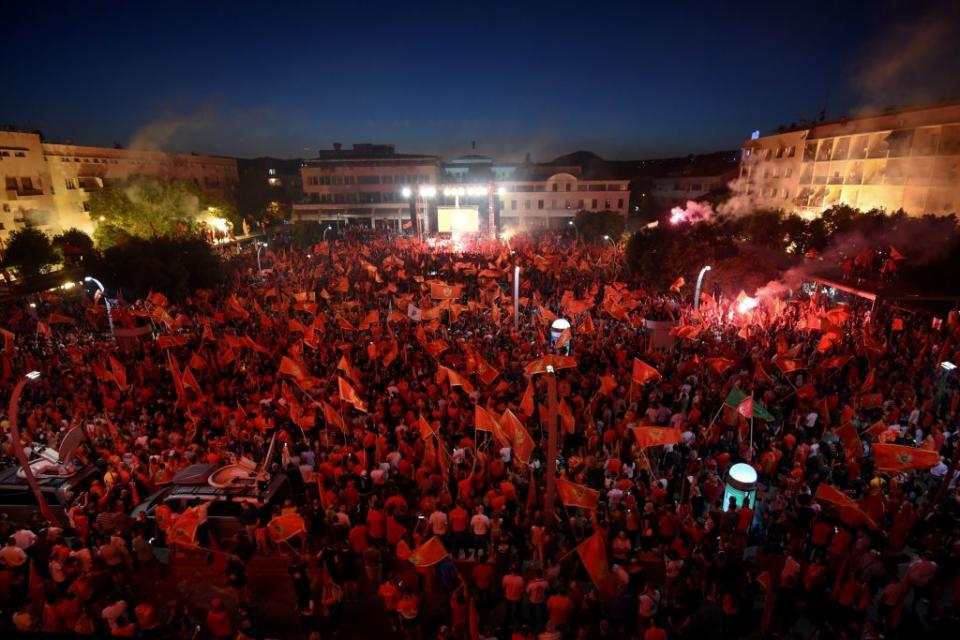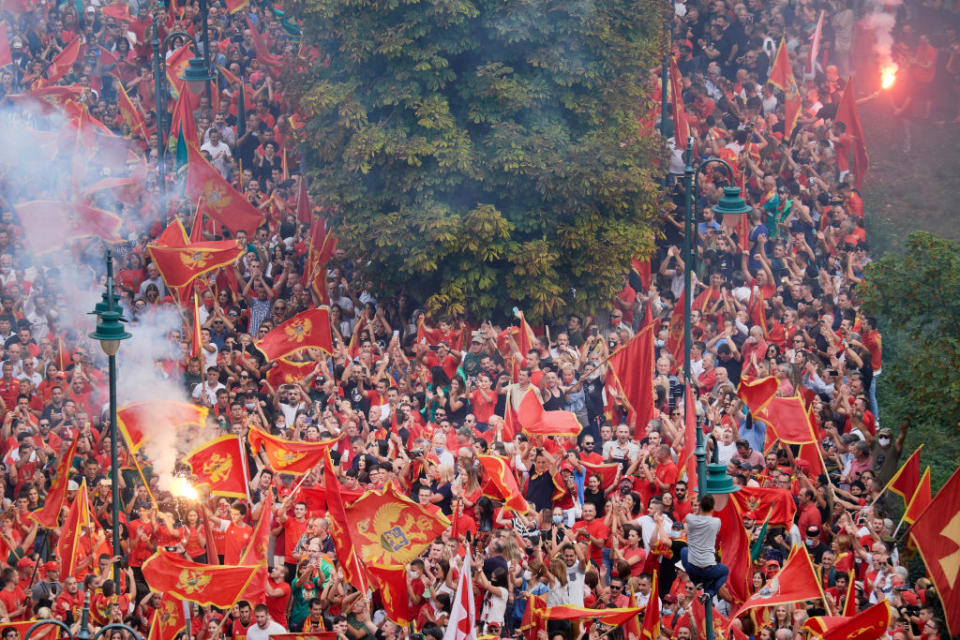Nation's daunting coronavirus surge weeks after huge protests
Coronavirus cases are surging in Montenegro just weeks after tens of thousands took to the streets in protest against the nation’s election results.
As a daunting second wave sweeps across Europe, the small Balkans nation has seen cases almost double in the space of three weeks and coincides with widespread protests several weeks ago.
While outbreaks across the UK, Spain and a host of other European countries dominate the news, Montenegro now has the highest seven-day average for the number of new cases per 100,000 residents, of countries with more than 500,000 residents.
The nation, which in May declared itself coronavirus-free, is only second to Armenia in Europe in terms of cases per capita since the pandemic began, with 1,561 cases per 100,000 people.
An uptick in cases, which began around the start of the month, has now resulted in cases surging and comes after a groundbreaking election led to protests in direct defiance of Covid restrictions.


On August 30, the Democratic Party of Socialists lost the national election, ending 30 years of control for the party, sparking mass protests despite the warnings of dire repercussions from health authorities.
Three opposition coalitions claimed a slender victory with 41 of 81 seats in parliament, yet there links to Serbia, including the use of Serbian national symbols in their election celebrations, sparked anger from nationalists.
Montenegro remains deeply divided over its ties with Serbia – with some advocating closer ties with Belgrade and others opposing any pro-Serb alliance.

Shocking photos from the beginning of September show protesters crammed into public spaces in the capital of Podgorica, with little social distancing and mask wearing.
Crowds waved Montenegrin national flags and chanted: “This is not Serbia... We do not give away Montenegro”.
On September 7, defeated Prime Minister Dusko Markovic threw his support behind the protests, tweeting: “Long live Montenegro”.
The head of Montenegro’s Institute for Public Health, Boban Mugosa, warned protesters to adhere to restrictions as cases began to soar.

“With mass gatherings continuing, we will have an upward trend of infections and I am afraid that it will get bigger and bigger,” he pleaded.
“I ask everyone to refrain from mass gatherings, to respect ourselves and our own and to protect the community and health.”
Montenegro health officials are now desperately trying to curtail the spread of the virus, implementing new restrictions on hospitality venues in the capital, local newspaper Pobjeda reported.
Restrictions include a venue curfew until 10pm and table capacities of two.
Yet the hospitality industry has hit back, refuting claims the industry is a driver of infection and have lambasted the government for failing to provide evidence and an explanation for the “illogical” decision.
Dramatic change in fortune for Montenegro
The surge in cases is in stark contrast to the nation’s position in May, when it declared itself coronavirus-free.
The tourism industry promoted the country as the first free of the virus, hoping to attract visitors after a significant hit to the economy.
Montenegro welcomed international visitors back to the country at the start of June after a month of zero cases, only for the virus to return two weeks later.
Do you have a story tip? Email: newsroomau@yahoonews.com.
You can also follow us on Facebook, Instagram and Twitter and download the Yahoo News app from the App Store or Google Play.




